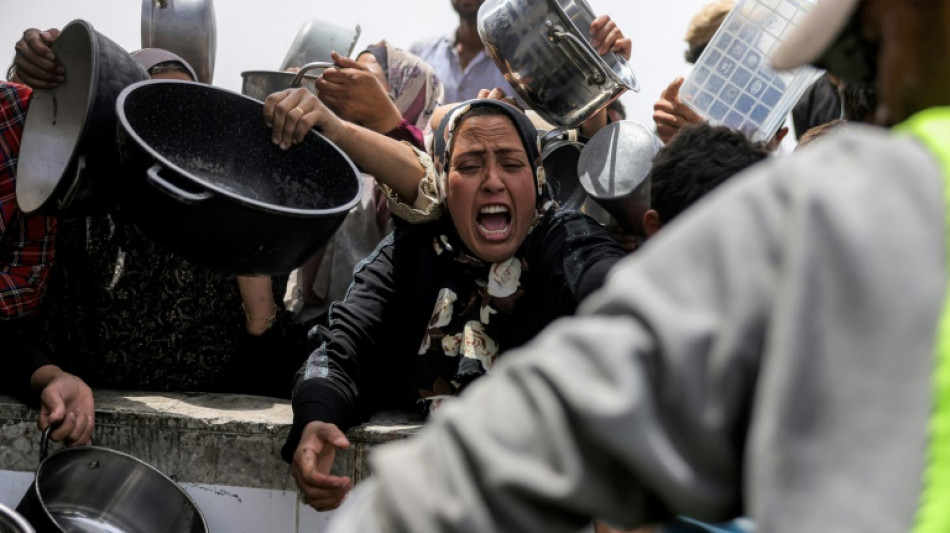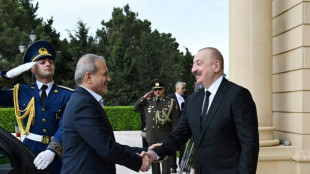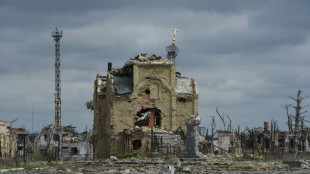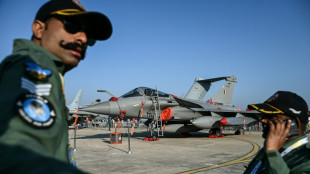

Palestinian official tells ICJ Israel using aid blockage as 'weapon of war'
A top Palestinian official told the International Court of Justice on Monday that Israel was blocking humanitarian aid to Palestinians in Gaza as a "weapon of war", starting off a week of hearings at the UN's top court.
Israel is not participating at the ICJ but hit back immediately, dismissing the hearings as "part of the systematic persecution and delegitimisation" of the country.
The ICJ is hearing dozens of nations and organisations to draw up a so-called advisory opinion on Israel's humanitarian obligations to Palestinians, more than 50 days into its total blockage on aid entering war-ravaged Gaza.
Beginning for the Palestinians, top official Ammar Hijazi told judges that "all UN-supported bakeries in Gaza have been forced to shut their doors".
"Nine of every 10 Palestinians have no access to safe drinking water. Storage facilities of the UN and other international agencies are empty," added Hijazi.
"These are the facts. Starvation is here. Humanitarian aid is being used as a weapon of war," concluded the Palestinian representative.
Speaking in Jerusalem, Israeli Foreign Minister Gideon Saar alleged: "This case is part of a systematic persecution and delegitimisation of Israel."
"It is not Israel that should be on trial. It is the UN and UNRWA", he told reporters, referring to the United Nations aid agency for Palestinians.
Israel has enacted a law banning UNRWA from operating on Israeli soil, after accusing some of the agency's staff of participating in the Hamas October 7, 2023, attack that sparked the conflict.
Independent investigations say it has not provided evidence for its headline allegation.
- 'Utmost urgency' -
The UN's General Assembly approved a resolution in December asking the ICJ for an advisory opinion on the matter "on a priority basis and with the utmost urgency".
The resolution, spearheaded by Norway, was adopted by a large majority.
The UN has asked judges to clarify Israel's legal duties towards the UN and its agencies, international organisations or third-party states to "ensure and facilitate the unhindered provision of urgently needed supplies essential to the survival of the Palestinian civilian population".
Israel strictly controls all inflows of international aid vital for the 2.4 million Palestinians in the Gaza Strip.
It halted aid deliveries to Gaza on March 2, days before the collapse of a ceasefire that had significantly reduced hostilities after 15 months of war.
The UN estimates 500,000 Palestinians have been displaced since the two-month ceasefire ended in mid-March.
Israel resumed air bombardment on March 18, followed by renewed ground attacks.
This has triggered what the UN has described as "likely the worst" humanitarian crisis the occupied Palestinian territory has faced since the war started after the Hamas October 7, 2023, attack.
That attack resulted in the deaths of 1,218 people on the Israeli side, mostly civilians, according to an AFP tally based on official Israeli figures.
Israel's retaliatory military offensive has killed at least 52,243 people in Gaza since October 2023, also mostly civilians, according to the health ministry in the Hamas-run territory.
At least 2,111 Palestinians have been killed since March 18.
The UN considers the ministry's figures reliable.
The Israeli government says the assault aims to force Hamas to free the remaining captives.
Hostages' relatives have said it could "sacrifice" their loved ones.
Although the ICJ's advisory opinions are not legally binding, the court believes they "carry great legal weight and moral authority".
In July, the ICJ issued an advisory opinion confirming that Israel's occupation of the Palestinian territories was "unlawful" and must end as soon as possible.
U.Brunner--NRZ




